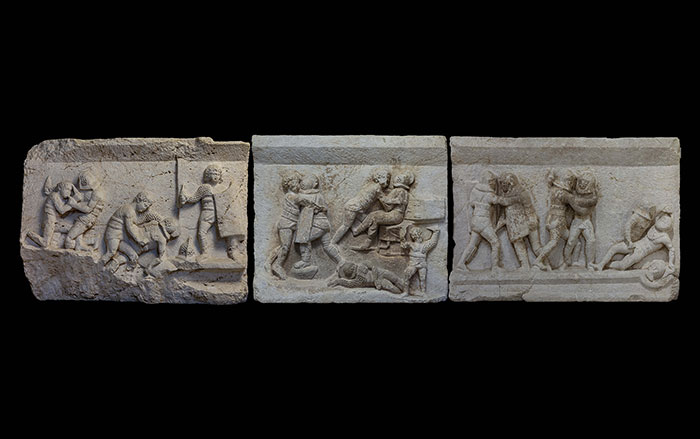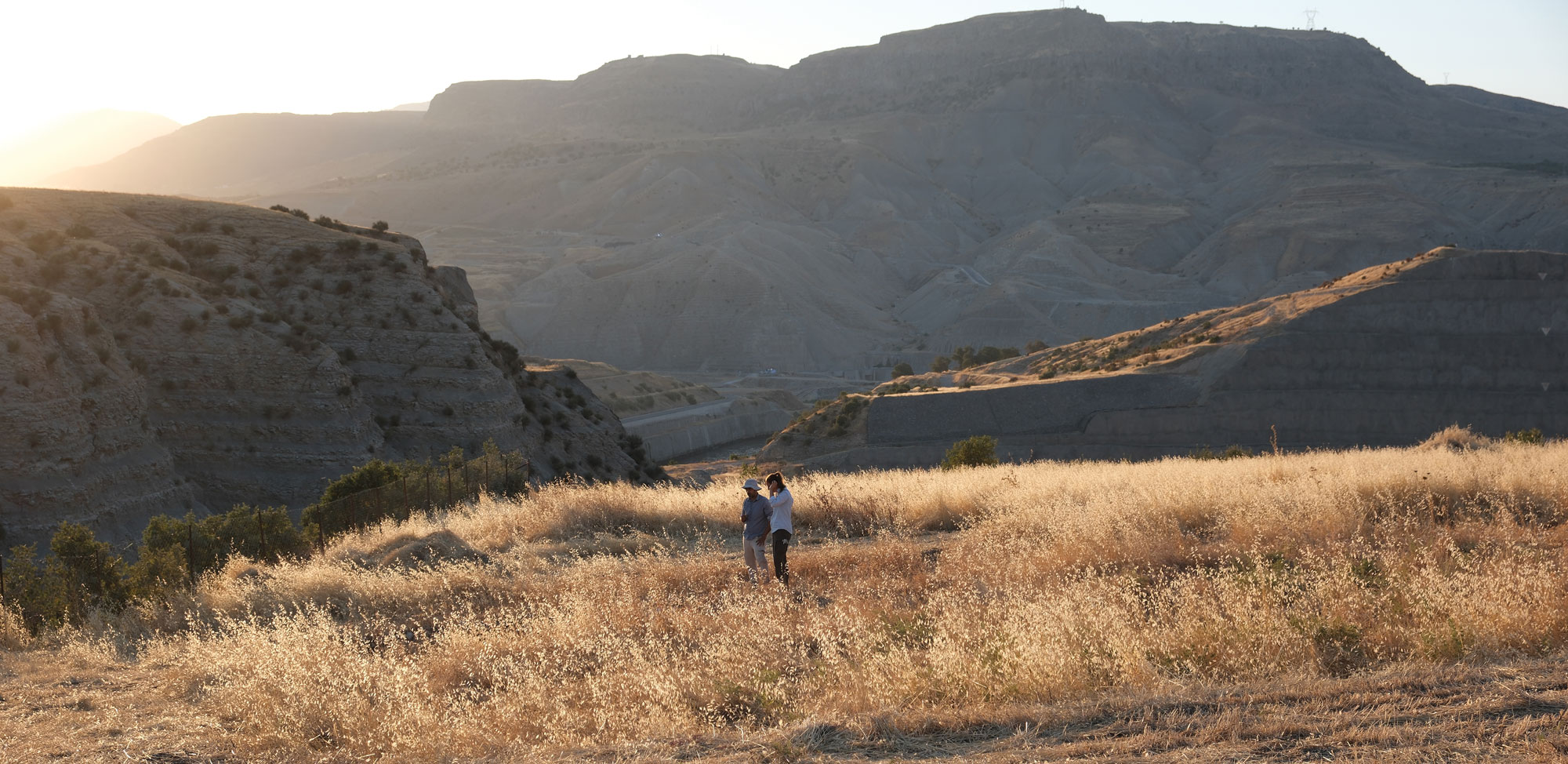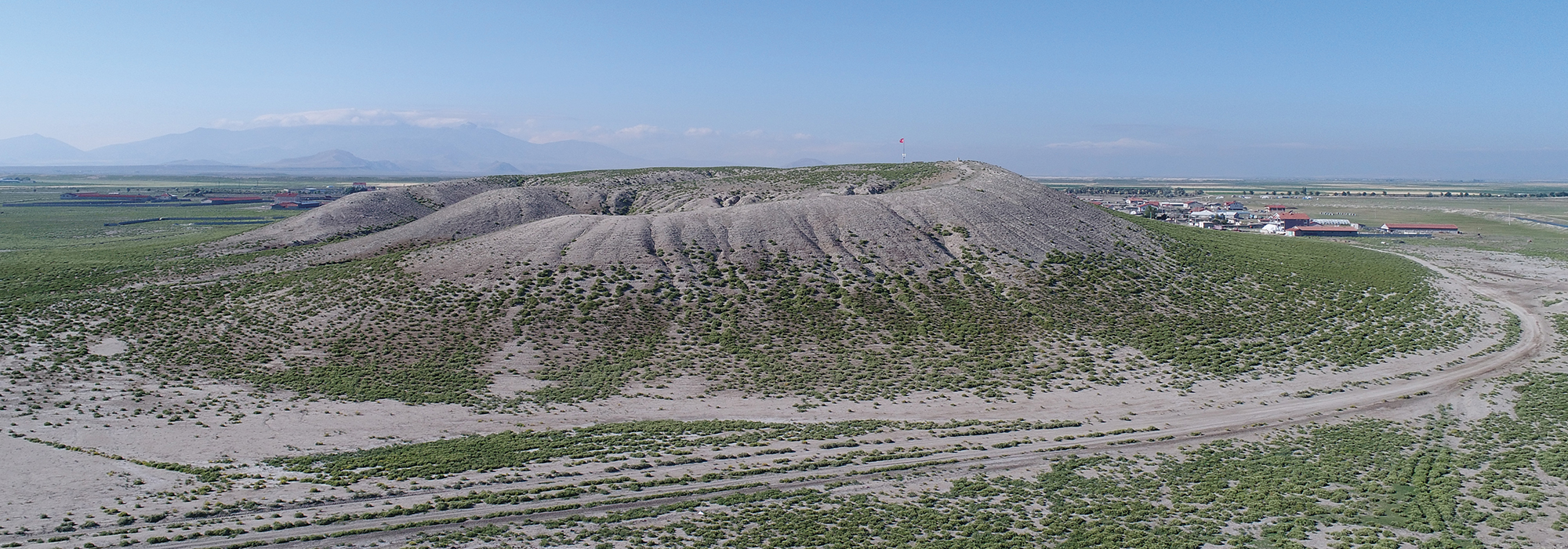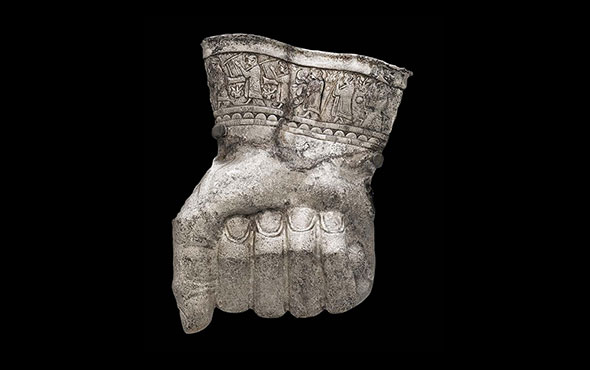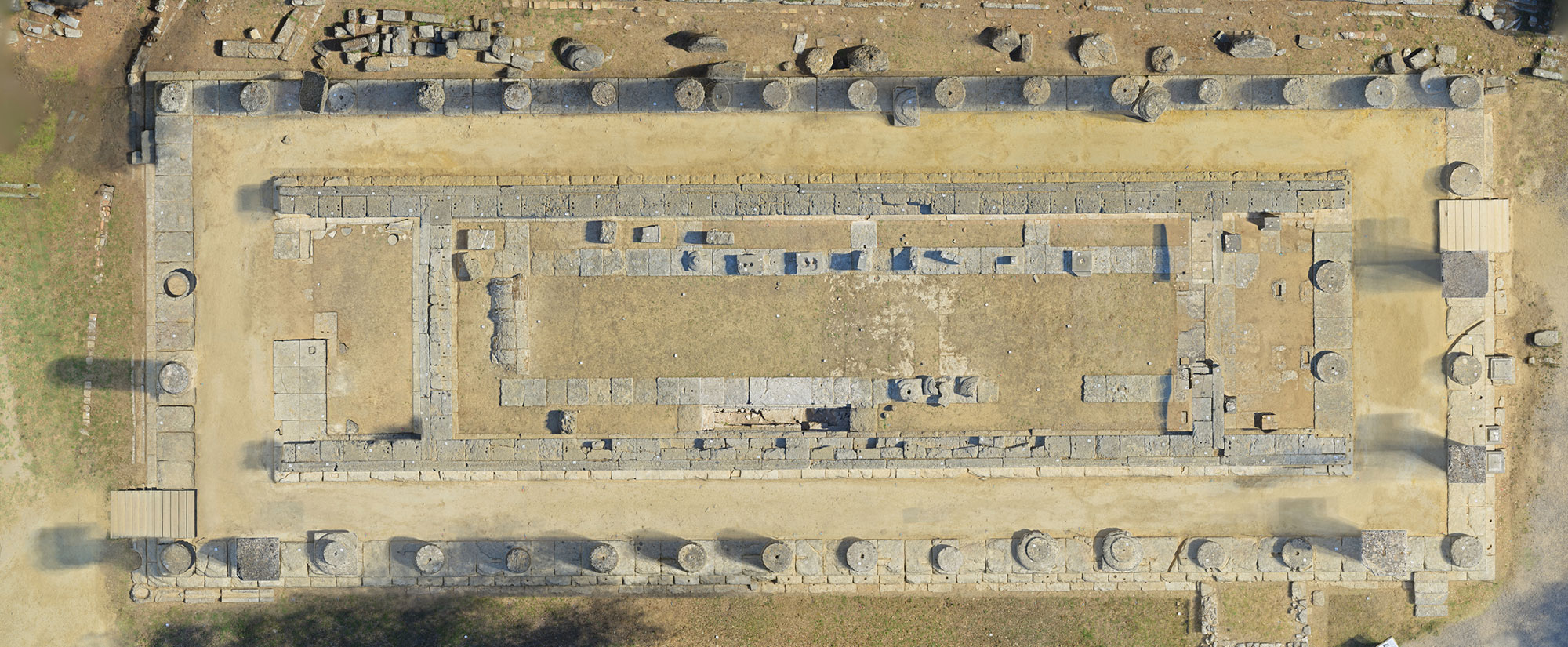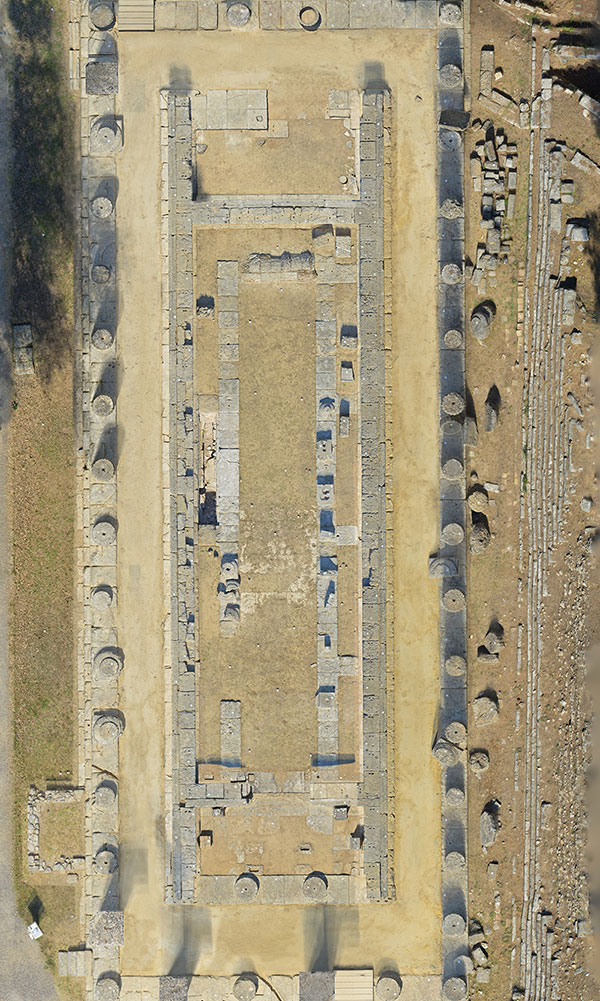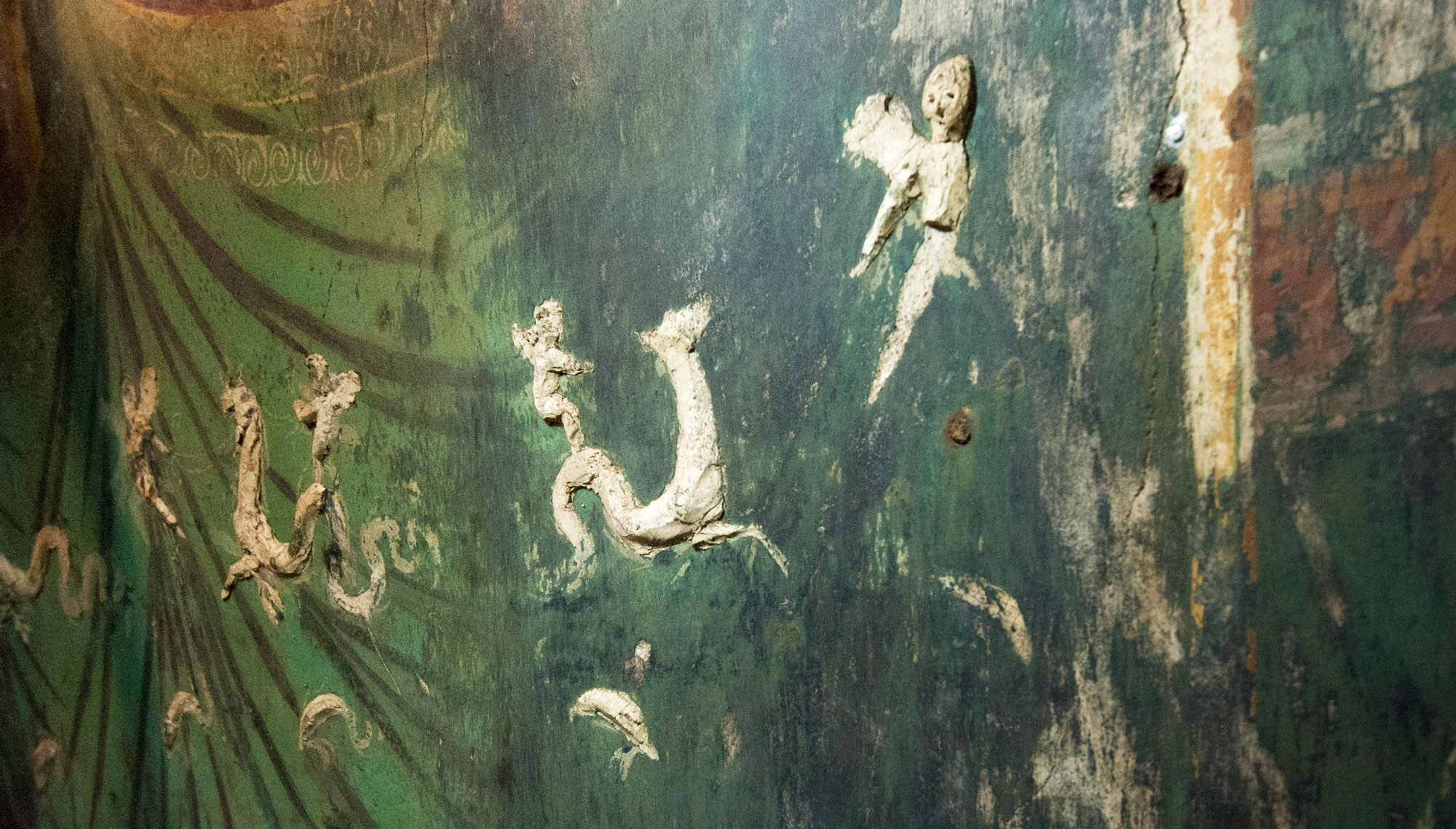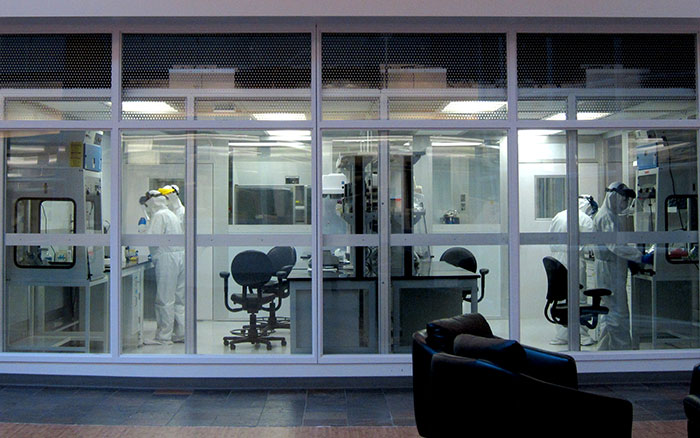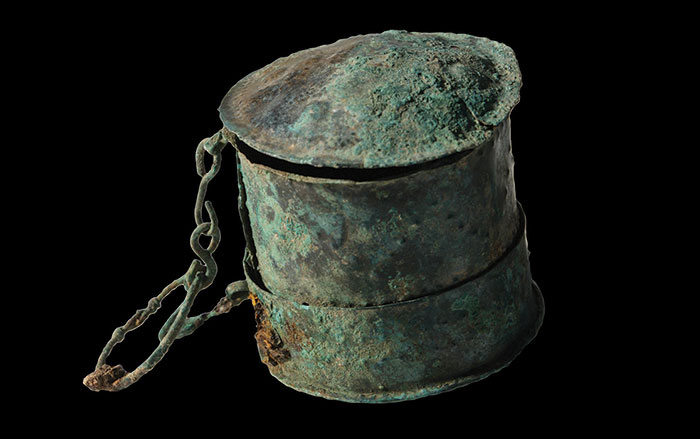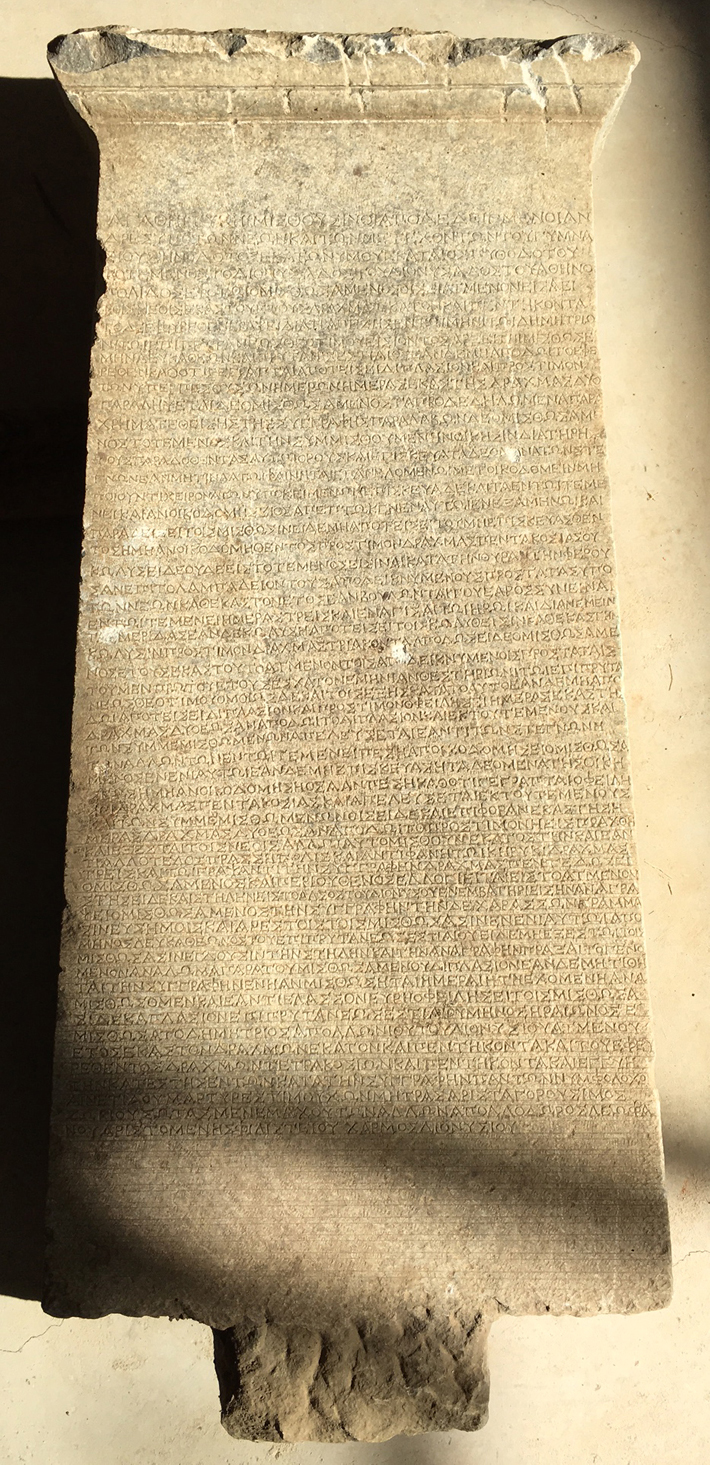
IZMIR, TURKEY—Hürriyet Daily News reports that a 2,200-year-old inscription discovered near the temple of Dionysus in the ancient city of Teos is a detailed rental agreement. Mustafa Adak of Akdeniz University said that the agreement, written on a stela measuring five feet long, describes a group of gymnasium students who inherited land, buildings, slaves, and an altar, and then rented them at an auction. “A guarantor was needed for the agreement,” Adak said. “The names of the renter and his father were written in the agreement. Six witnesses were also necessary for this agreement to be valid, three of whom were the top administrators in the city.” Adak explained that the students, called Neos, wanted to retain use of the land for three days each year, and inspect it annually. About half of the document describes punishments for the renter in case the land was damaged or the rent was not paid. Adak also noted that two legal terms in the inscription are not well understood. “Ancient writers and legal documents should be examined in order to understand [what] these words mean,” he said. For more on archaeology in Turkey, go to “The World's First Temple.”


